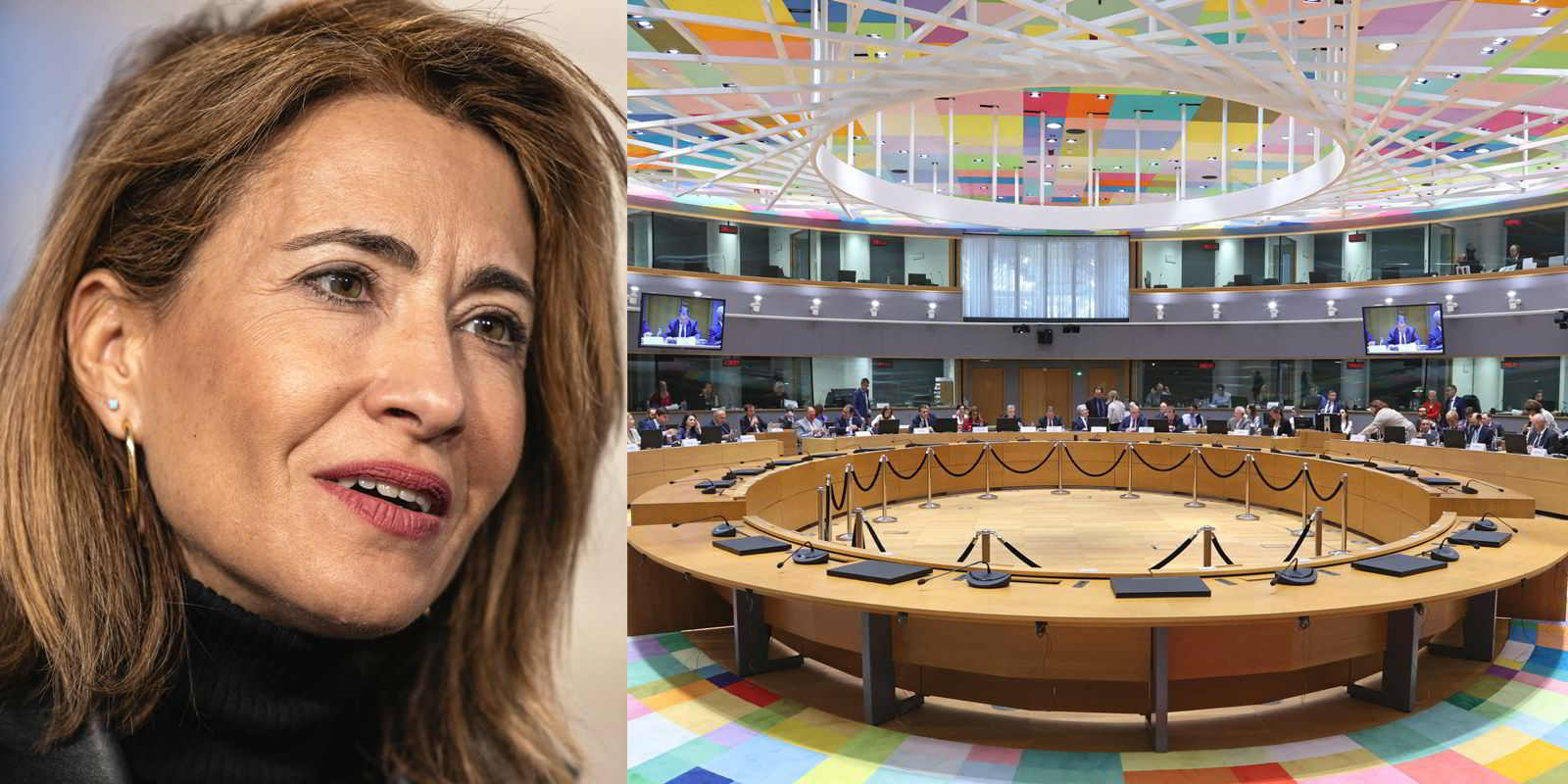The European Council has approved new legislation that will place progressive caps on the greenhouse gas intensity of energy on ships, in legislation that some believe will do more to cut the industry’s emissions than the higher-profile European Union Emissions Trading System (EU ETS).
Approval by the council marks the final major hurdle for FuelEU Maritime, which is aimed at boosting demand for green fuels, after approval by the EU’s other main institutions.
The legislation, part of the bloc’s Fit for 55 package of climate laws, will require ships to decrease the greenhouse gas intensity of their energy use by 2% starting in 2025.
That reduction rises to 80% in 2050.
The limits will be enforced by a penalty assessed for every non-compliant call at an EU port. The council said it will be used for projects to support shipping’s decarbonisation.
Raquel Sanchez Jimenez — Spain’s minister of transport, mobility and urban agenda — said FuelEU Maritime will “substantially deliver” on the EU’s climate targets.
“The new law will provide legal certainty for ship operators and fuel producers and help kick-start the large-scale production of sustainable maritime fuels, thus substantially delivering on our climate targets at European and global level,” she said.
Among its provisions, the law creates incentives for low and zero-carbon fuels made from renewable energy, rather than biofuels.
It requires passenger and container ships to use on-shore power supply when at major EU ports starting in 2030.
And FuelEU Maritime creates a mechanism for ship operators to pool compliance to meet the carbon intensity limits.
Like the EU ETS legislation, which starts requiring vessel operators to pay for the right to pollute for emissions in 2024 and beyond, the legislation has special exceptions for small islands and the overseas territories of EU countries.
Proposed by the European Commission in 2021, FuelEU Mariitme will become law when the council’s decision is published this summer.
Is that enough?
Jacob Armstrong, sustainable shipping manager at Brussels-focussed green lobby group Transport & Environment, told TradeWinds that FuelEU Maritime will make an impact on shipping emissions, particularly as the 14.5% reductions enter force in 2035 and the 31% cuts come into the picture in 2040.

“We’re going to see massive outputs of things like e-fuels and [other] clean zero-emissions fuels by then,” he said.
But analysis by Transport & Environment has found that the upcoming EU rules will undershoot the goals of the Paris Agreement.
“We’re not going to get enough emissions reductions in the short term,” Armstrong said.



